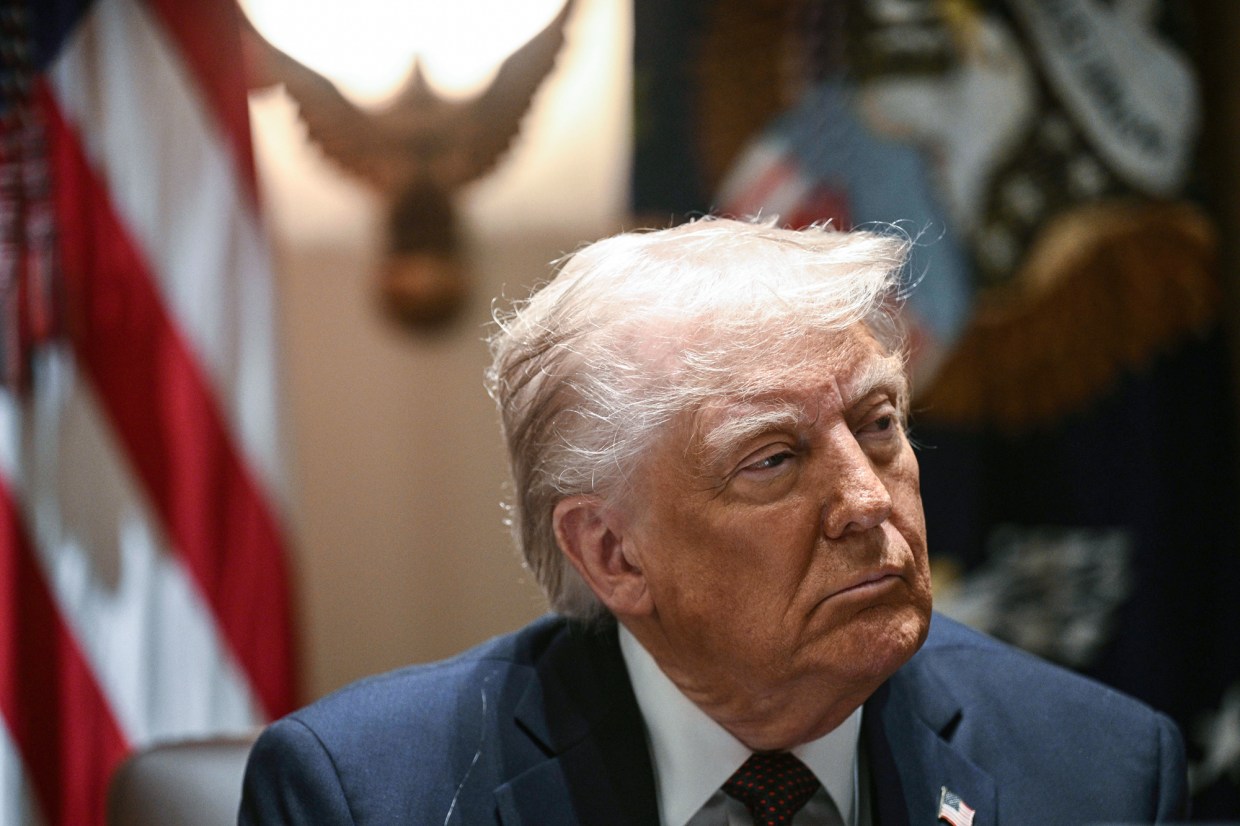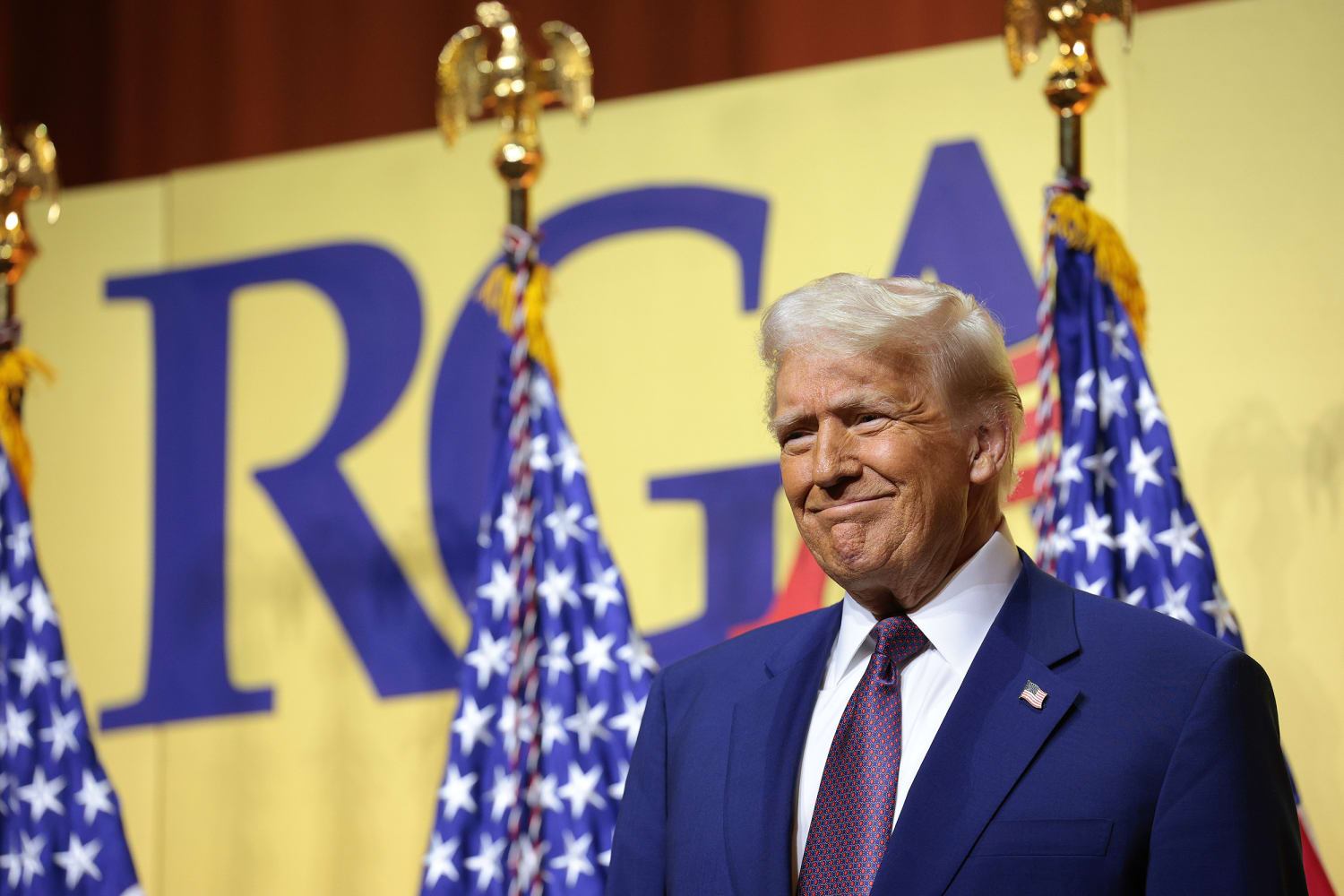
House Republicans voted on Tuesday to prevent Democrats from forcing votes on several high-profile investigative resolutions aimed at the Trump administration.
In a procedural move that passed with a narrow 216-208 margin, GOP lawmakers advanced a rule change that effectively shields the White House from legislative oversight efforts through the end of September.
The vote marks a continued trend by House Republicans to use procedural tools not just to advance legislation, but to curb their political opponents' ability to compel accountability from the executive branch. At the center of the controversy are so-called resolutions of inquiry, legislative tools that allow members of the House to formally request documents or information from the president or executive agencies.
Though rarely used in past decades, these resolutions carry procedural weight, allowing them to bypass committee inaction and receive a floor vote after a waiting period.
In the first 100 days of President Trump’s current term, Democrats have introduced multiple resolutions of inquiry targeting different areas of concern.
Among the most contentious issues are the administration’s use of encrypted messaging apps like Signal for official communications, potential conflicts of interest involving businessman Elon Musk, and questions surrounding a new government department focused on efficiency and restructuring.
The Republican-led rule change prevents these resolutions from reaching the House floor, effectively halting any further action or debate on the matters until October.
Speaker Mike Johnson defended the move, characterizing it as a necessary step to maintain legislative focus and prevent what he described as political distractions.

“We are using the rules of the House to prevent political hijinks and political stunts,” Johnson said shortly before the vote. “They showed us over the last four years, last eight years — they used lawfare, they used conspiracy theories, all these political weapons to just go after the president and make his life miserable. That’s not what the American people voted for, that’s not what they deserve. We can do better, so we’re preventing this nonsensical waste of our time. We don’t have time to waste.”
The rule in question was added as a provision to an unrelated set of legislative measures on Monday, a strategic move that ensured it could be passed alongside less controversial bills. The language inserted into the rule bars Democrats from using resolutions of inquiry until the end of the fiscal year on September 30.
While the tactic is not without precedent, it has drawn significant criticism from House Democrats, who argue that the move undermines transparency and democratic oversight.
Representative Mary Gay Scanlon, a Democrat from Pennsylvania who serves on the House Rules Committee, attempted to strip the provision from the broader rule package during a committee vote. Her effort failed along party lines, prompting her to speak out forcefully against the Republican action.
“They’re scared that the secretary of Defense continues to use unsecure methods to discuss classified information. They’re scared that the president’s tariffs are wrecking economic havoc. And they’re scared that this administration is deporting American citizens and others without due process,” Scanlon said during the hearing.
“And they don’t want to take votes to get information from the White House about all of these incidents because that’s the real problem, Americans want to hide behind this resolution so that they don’t have to risk the wrath of the president if they were to do their job and take votes on getting answers and conducting oversight.”
Among the key resolutions now blocked is one introduced by Representative Stephen Lynch, a Democrat from Massachusetts, seeking details about the administration’s use of the Signal messaging app for official business.
Lynch’s resolution asked that the president provide documents and records that detail whether administration officials had used encrypted or otherwise insecure digital platforms to communicate and whether such practices violate federal records laws.

Representative Gregory Meeks, the ranking Democrat on the House Foreign Affairs Committee, submitted a similar resolution. His version sought records related to military operations in Yemen, specifically targeting communications between President Trump and Secretary of State Marco Rubio.
Meeks cited the possibility that confidential information may have been transmitted to journalists using Signal, raising further concerns about the administration’s adherence to national security protocols.
GOP lawmakers have defended their decision as one of prioritization. Representative Michelle Fischbach of Minnesota, a Republican member of the Rules Committee, said the House needs to remain focused on advancing the legislative priorities of the Trump administration, including an ambitious tax and budget agenda currently in progress.
“We’re in the middle of a lot of things right now. We’re in the middle of reconciliation; we’re looking at all kinds of things right now. We’re very busy, plain and simple,” Fischbach said.
“Democrats are using this to clog things up and stop us from doing our business for the American people. Those few months, several months, that we are looking at is not going to create any great problems.”
Despite those assurances, the blocked resolutions reflect growing tension between Republicans and Democrats over the level of transparency expected from the executive branch. One Democrat-led resolution focused on the impact of the Department of Government Efficiency, a new agency created by the Trump administration to identify and eliminate waste in the federal bureaucracy.
Critics argue that the department's changes have disproportionately affected communities relying on federal programs, especially in economically vulnerable regions.
Another resolution asked for details on the financial relationship between Elon Musk’s companies and the federal government. Democrats have raised concerns about preferential treatment or policy shaping driven by Musk’s growing influence, particularly as he has taken on a more prominent role in national defense contracting and infrastructure advisory roles.

While Republicans have dismissed these resolutions as political distractions, Democrats see them as essential tools for conducting proper oversight. They point out that similar tactics were employed by Republicans during the Biden administration, when resolutions of inquiry were filed to obtain documents related to COVID-19 origins, foreign policy decisions, and Hunter Biden’s business dealings.
Republicans, in turn, argue that they are trying to prevent the House from becoming gridlocked by politically motivated investigations. They point to the limited legislative calendar and the backlog of bills requiring action as justification for blocking resolutions that, in their view, are designed more for headlines than governance.
This is not the first time either party has limited access to resolutions of inquiry. During the height of the COVID-19 pandemic, Democrats used procedural mechanisms to avoid bringing GOP-sponsored resolutions to a vote, citing the emergency context and the need to focus on public health and economic relief.
Republicans are now using a similar strategy, though critics argue the motivations are fundamentally different, rooted in political protection rather than crisis management.
The current conflict is also reminiscent of other recent procedural maneuvers. Just weeks ago, Republicans added language to separate rules packages that barred Democrats from calling votes to repeal tariffs imposed by the Trump administration. That move too was framed as a way to ensure legislative focus, though Democrats called it a form of legislative censorship.
What remains clear is that the resolution of inquiry has reemerged as a potent — and controversial — legislative tool. Its special procedural status means it can bypass committee bottlenecks, forcing the House to consider sensitive issues even when leadership would prefer to avoid them.
For Democrats, the tool has been a way to shine light on parts of the Trump administration they believe require scrutiny. For Republicans, it has become a battleground over control of the House floor and narrative.
With the new rule now in effect, Democrats are left to consider alternative paths for gathering information. Oversight committees remain an option, though their ability to compel cooperation without floor votes is limited. Lawsuits or Inspector General investigations could also arise as indirect forms of pressure. However, such actions are slower and more complex, often failing to draw public attention in the same way a floor vote might.

As the battle over procedural rules continues, the underlying issues remain unresolved. Questions about the use of encrypted communication by administration officials, the influence of private industry figures in policymaking, and the consequences of government reorganization still hang in the balance.
The coming months will test whether Congress can perform its oversight function in an environment increasingly shaped by partisan control and procedural warfare. And with the next fiscal year looming, the battle over access to information — and the right to question the administration — is far from over.



